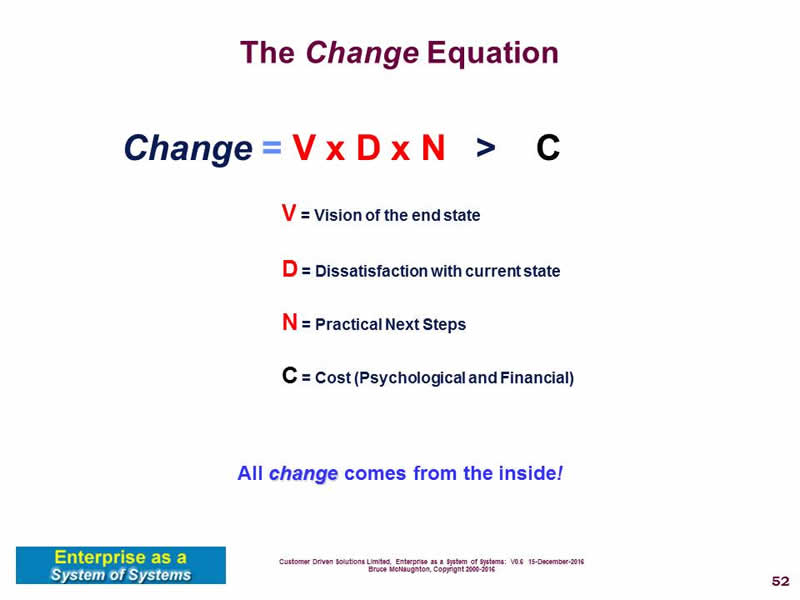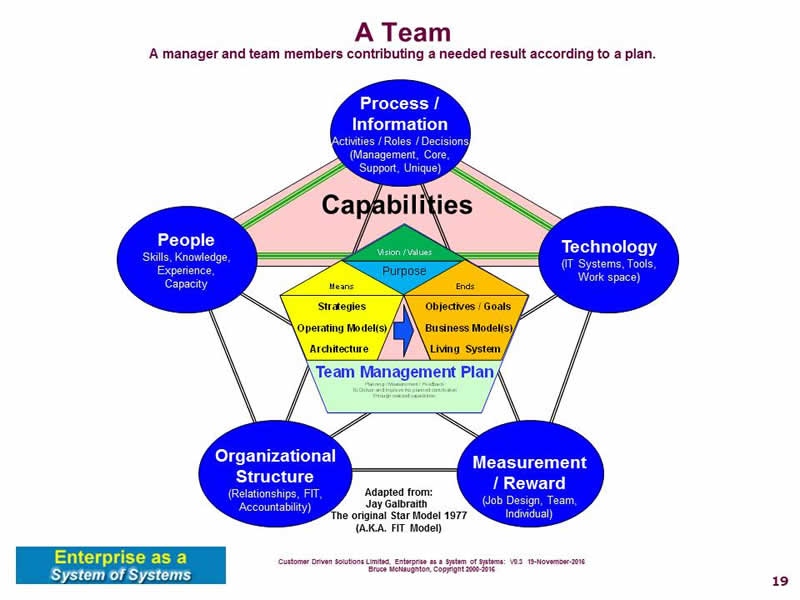Change Overview
Today, we know that the:
- Rate of change increasing
- Need for effective change is becoming critical
- Time to change needs to be shorter
- Complexity of change is increasing
- the dependencies are becoming much more visible
“The significant problems we face cannot be solved at the same level of thinking we were at when we created them.”
Without changing our thinking, we may not really solve the underlying problem.
T. S. Eliot gives us another view of change. Change is a journey not a destination:
“And the end of all our exploring will be to arrive where we started and know the place for the first time.” T. S. Eliot, Four Quartets.
Change is a process. Each cycle through the process contributes to achieving the vision.

When Vision, Dissatisfaction with the current state and practical Next steps exist, there is a chance a change will occur. The product of the three variables must be perceived to be greater than the costs. The costs are both psychological and tangible costs.
Change must become easy and predictable using a repeatable change process. All of the change components must be considered:

This ChangeAide web site is pulling together pointers to sources of information and tools that can assist you to navigate change in your organisation and your life.
Please contribute your thoughts in the forum or provide feedback using our contact information.
xxx